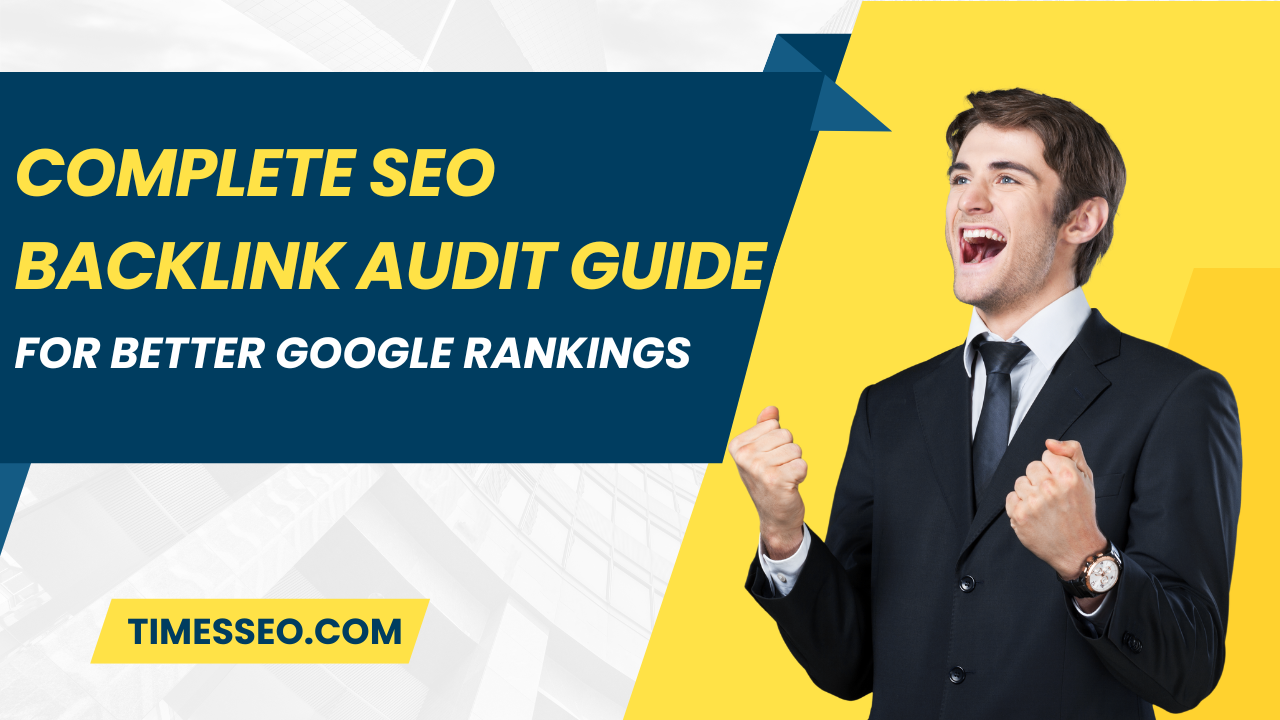
Core Elements of Effective SEO Audit Services
Learn the core elements of effective SEO audit services that drive real results. This guide explores technical SEO, on-page and off-page factors, content strategy, and more to help you optimize your website for better rankings and visibility using top-tier SEO audit services.
Table of Contents
Introduction
Think of your website like a car. It may look shiny from the outside, but if the engine’s busted, you’re not getting very far. The same goes for SEO — and that’s where SEO audit services come in. But not all audits are created equal. The core elements of an effective SEO audit separate average results from powerful growth.
Why SEO Audits Are Crucial for Online Success
SEO isn’t a one-and-done kind of thing. Search engines update, competitors step up their game, and your site evolves. Regular audits help ensure you’re not leaving traffic or conversions on the table.
What Makes an SEO Audit Truly “Effective”?
An effective audit goes beyond surface-level stats. It dives deep into technical structure, content quality, backlink health, and more — giving you an actionable roadmap to fix, optimize, and grow.
1. Website Technical Health
Site Architecture and URL Structure
Both consumers and search engines benefit from a site structure that is clear and logical. Flat structures and SEO-friendly URLs are a must.
Mobile-Friendliness and Responsiveness
Your mobile site is your site when you use mobile-first indexing. A solid audit checks rendering, responsive design, and mobile usability.
Crawlability and Indexability
If Googlebot can’t crawl it, it won’t rank. Audits look for robots.txt issues, broken redirects, sitemap problems, and more.
Website Speed and Core Web Vitals
Nobody waits for slow sites. These days, ranking factors include core web vitals like CLS (Cumulative Layout Shift) and LCP (Largest Contentful Paint).
2. On-Page SEO Optimization
Title Tags and Meta Descriptions
These are your first impression on the SERP. Effective audits flag missing or duplicated tags and optimize them for CTR.
Header Tags and Content Structure
Proper use of H1, H2, and H3 tags helps with SEO and readability. A good audit checks their logical flow and keyword use.
Keyword Usage and Placement
Stuffing is out. Smart keyword usage that matches search intent is in.
Internal Linking Strategy
Effective audits spot broken or orphaned pages and recommend ways to improve internal flow and authority distribution.
3. Off-Page SEO Factors
Backlink Quality and Diversity
It’s not just the number of backlinks — it’s the quality and diversity. A deep audit checks for spammy links, anchor text patterns, and toxic domains.
Domain Authority and Trust Signals
Tools like Moz and Ahrefs help gauge your overall trustworthiness in the eyes of Google.
Social Media Mentions and Signals
Social shares can affect visibility and referral traffic even though they are not direct ranking considerations.
4. Content Audit
Content Relevancy and Originality
Content should be helpful, unique, and up to date. No fluff, no plagiarism.
Keyword Mapping to User Intent
Matching the right keywords to the right page is crucial. Audits identify mismatches and content gaps.
Identifying Thin or Outdated Content
Pages with little to no value need updating, merging, or deletion.
5. Local SEO Components
Google Business Profile Optimization
An optimized GBP means you show up in map packs and local searches. Consistent NAP details, business categories, and updates matter.
NAP Consistency Across Listings
Your Name, Address, and Phone number should be consistent across all directories.
Review Management and Local Citations
Audits also check your review ratings and citation volume/accuracy across sites like Yelp, BBB, and Yellow Pages.
6. User Experience and Design
Bounce Rate and Dwell Time Analysis
High bounce rates may be a sign of irrelevant material or subpar UX. A great audit investigates these patterns.
Navigation and Accessibility
A clear nav menu, descriptive alt text, and ADA compliance improve both SEO and usability.
Mobile UX and Engagement
From button sizes to swipe usability, mobile experience can make or break conversions.
7. Competitor SEO Benchmarking
Keyword Gap Analysis
What keywords are your competitors ranking for that you’re not? That’s gold right there.
Backlink Profile Comparison
Analyzing competitor backlinks can reveal new link-building opportunities.
Content and SERP Positioning Insights
See who’s ahead of you in the SERPs — and why. Then replicate what works (and improve it).
8. Analytics and Tracking Implementation
Google Analytics and Search Console Integration
No audit is complete without proper tracking in place. These tools offer data goldmines.
Conversion Tracking Setup
Tracking goals like form fills, downloads, or purchases is vital for ROI insights.
Event and Goal Tracking
From scrolls to button clicks, event tracking helps refine your site’s performance.
9. Security and Compliance Check
HTTPS Implementation
Not having an SSL certificate? That raises concerns for both Google and users.
GDPR and Cookie Compliance
Especially for EU traffic, legal compliance is not optional.
10. SEO Tools Used in Effective Audits
SEMrush, Ahrefs, Screaming Frog
These industry-standard tools analyze backlinks, crawl your site, and suggest improvements.
Google Tools (GSC, GA4, PageSpeed Insights)
Always include free tools by Google for trustworthy performance and indexing insights.
11. Common Issues Identified in Effective Audits
Broken Links and 404 Errors
These hurt both UX and SEO. Audits flag them for immediate fixing.
Duplicate Content and Cannibalization
Multiple pages targeting the same keywords confuse Google. Audits help consolidate them.
Missing Schema Markup
Rich snippets boost visibility. Where structured data can be introduced is determined by audits.
12. Deliverables of a Professional SEO Audit Service
Comprehensive Audit Report
Not just charts and graphs, but clear insights.
Actionable Roadmap with Prioritization
Know what to fix first for maximum impact.
Performance Monitoring Recommendations
What to track post-audit and how often.
Conclusion
An effective SEO audit is more than a checklist — it’s a strategic tool for growth. It uncovers problems, identifies opportunities, and offers a clear action plan to move your website higher up the rankings. Whether you’re a small business or a growing brand, don’t just do SEO — audit it the smart way.
Frequently Asked Questions
Technical SEO, on-page content, backlinks, and analytics setup are crucial components.
It usually takes between 5 to 14 days depending on the website size and depth of the audit.
Yes, many agencies offer affordable packages tailored to small business budgets.
They’re useful for basics, but professional audits with premium tools provide deeper insights.
At least twice a year or before/after major site changes or Google algorithm updates.
Table of Contents
Popular Posts
-
 Affordable Technical SEO Audit for Small Business: A Complete Guide26 Jun 2025 Blog
Affordable Technical SEO Audit for Small Business: A Complete Guide26 Jun 2025 Blog -
 How to Get an Affordable Technical SEO Audit for Small Business27 Jun 2025 Blog
How to Get an Affordable Technical SEO Audit for Small Business27 Jun 2025 Blog -
 The Ultimate Local SEO Audit Checklist for Startups28 Jun 2025 Blog
The Ultimate Local SEO Audit Checklist for Startups28 Jun 2025 Blog -
 Local SEO Audit Checklist for Startups: A Beginner’s Guide28 Jun 2025 Blog
Local SEO Audit Checklist for Startups: A Beginner’s Guide28 Jun 2025 Blog -
 Top On-Page SEO Audit Steps for Service Websites Every Business Should Know29 Jun 2025 Blog
Top On-Page SEO Audit Steps for Service Websites Every Business Should Know29 Jun 2025 Blog -
 Technical SEO for WordPress: The Ultimate Beginner’s Guide01 Jul 2025 Blog
Technical SEO for WordPress: The Ultimate Beginner’s Guide01 Jul 2025 Blog -
 The Impact of On-Page SEO Audit Steps for Service Websites on UX01 Jul 2025 Blog
The Impact of On-Page SEO Audit Steps for Service Websites on UX01 Jul 2025 Blog -
 Technical Mobile SEO Audit Tips for Developers02 Jul 2025 Blog
Technical Mobile SEO Audit Tips for Developers02 Jul 2025 Blog -
 Complete SEO Backlink Audit Guide for Better Google Rankings03 Jul 2025 Blog
Complete SEO Backlink Audit Guide for Better Google Rankings03 Jul 2025 Blog -
 Boost Your Rankings with Technical SEO for WordPress01 Jul 2025 Blog
Boost Your Rankings with Technical SEO for WordPress01 Jul 2025 Blog






